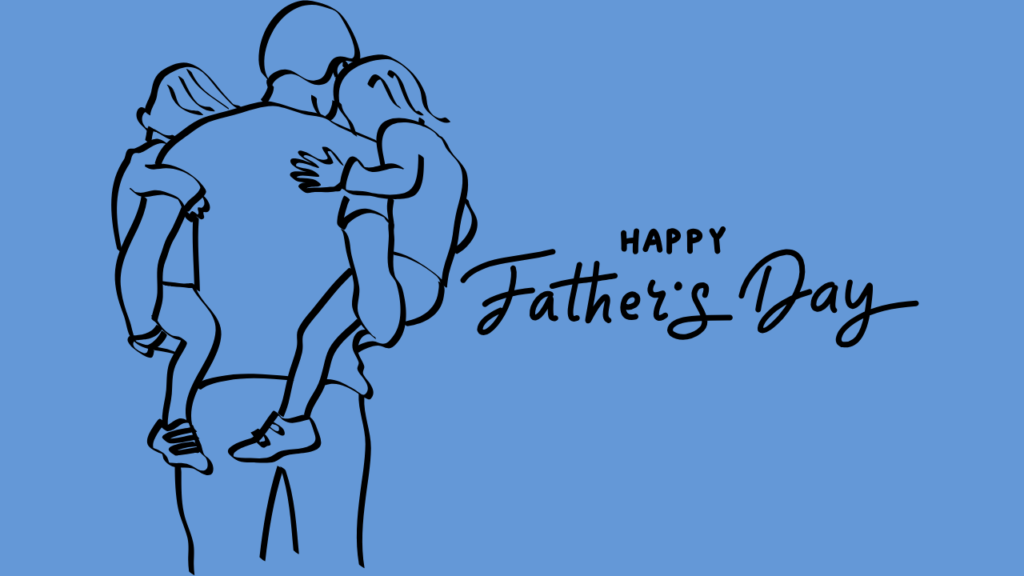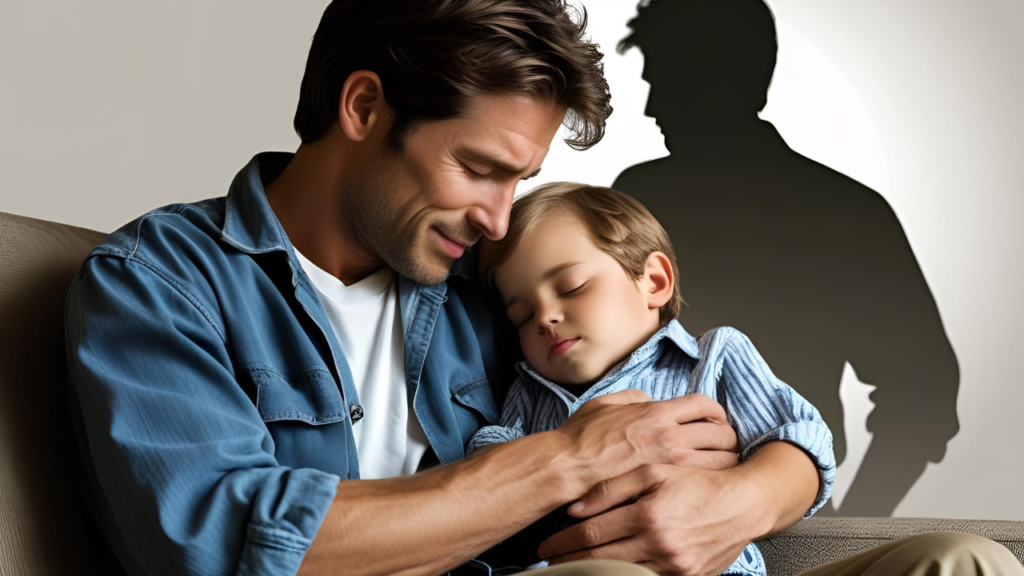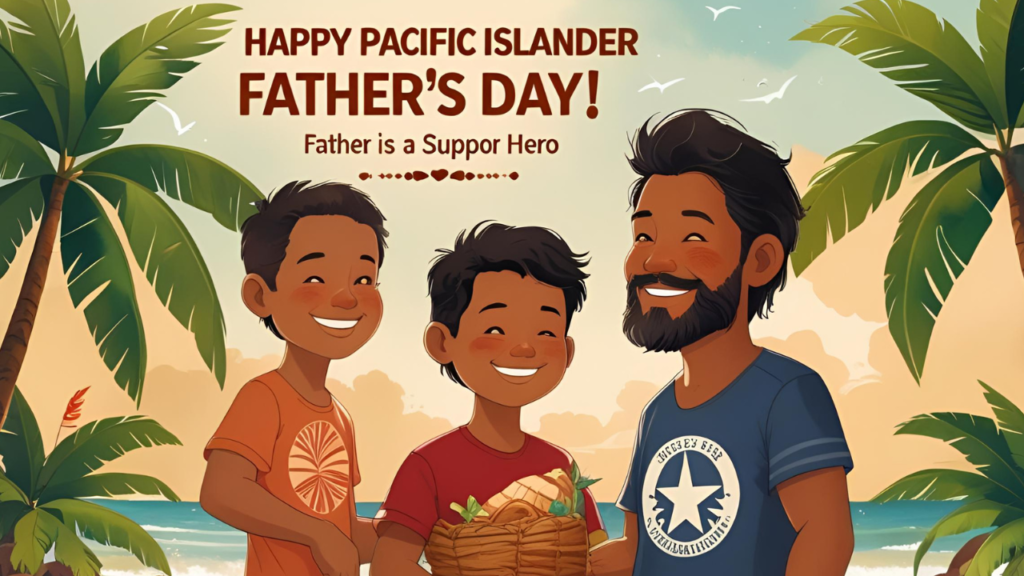Acknowledging the Unsung Heroes, Happy Father’s Day!
Father’s Day is not just another date on your calendar; it’s a day to commemorate the men who have shaped who we are by their strength, character, and care. Fathers are so much more than a biological relationship, they are mentors, protectors, critics, adventurers, and friends. No matter if he’s a low-key, hands-off kind of dad or the loudest member of our cheering section, fathers deserve to be recognized today.
Fathers typically don’t ask for much from us; they rarely ask to be recognized; they seldom ask for anything, as they are constantly working, giving, offering guidance with little or no thanks. Let’s change that today. Today, let’s affirm dads by simply saying “We see you and we appreciate you and we love you.”
Fathers take us on backyard camping adventures and give us life advice over coffee reminding us that life is filled with endless adventure and meant to be lived, without fear. So, how do we express our appreciation on Father’s Day? Well let’s stop with the gift cards or ties and recognize and honour the commitment, sacrifice and extraordinary stories of dads around us.

The Value of Father’s Day
Celebrating the Strength of Dads
Father’s Day is not just a tradition; it is a potent reminder of the significance of fathers in not just families but societies at large and human development more broadly. These men are secondary to mothers. They represent a security blanket, direction, and moral compass when we are learning to walk through life. While Mother’s Day is loud and commercial, Father’s Day is quieter and less obvious—it is equally important.
Dads are sometimes the quiet strength of every family, keeping the family “glued” together when things feel like they are “falling apart.” Dads don’t always express their love through words, but they express it through their individual actions—fixing broken things, staying up late to help with an assignment or just “being there” in difficult times.
Celebrating that strength and the simple presence on Father’s Day is an invitation to pause to reflect on the subtle and complex ways fathers impact our lives (the impact is not always tangible). Father’s Day is an opportunity to commit respect and appreciation back to the man—generally, fathers unconditionally support because it is a responsibility, and often, they don’t say or do much to elicit recognition and appreciation.

The Origins of the Day
Father’s Day has its origins in the United States since the early 20th century. It was first celebrated in the United States in 1910 through the efforts of Sonora Smart Dodd. Dodd petitioned local clergy for a day to honor fathers, inspired by Mother’s Day, and because she knew firsthand the sacrifices and strength of fathers as single parents. It became a national holiday in 1972.
An important point is that Father’s Day is also celebrated in part around the world. There are many forms of celebration from Germany’s “Vatertag” party to Thailand’s December 5 celebration coinciding with the King’s birthday. No matter the method of celebrating fatherhood, there is a universal commonality between cultures celebrating the esteem for fatherhood. It represents a universal concept which recognises masculine love and mentorship.
What is its function? It’s legacy. When we celebrate Father’s Day, we recognize the love, passed through generations, from father to child, the foundation for innumerable family generations.

The Many Faces of Fatherhood
Biological Fathers: A Traditional Role
When dads comes to mind, for many of us the thought of our biological father—the man who raised, who first played peekaboo with, who taught us how to ride a bike—comes first and foremost. This traditional role carries a great deal of weight, not just due to sharing DNA, but because of emotional and moral grounding these fathers provide.
Often, these dads are our first teachers. From teaching us how to tie our shoes to how to fail gracefully, they help lay the foundation of our lives providing us time, love, but most importantly, examples.
However, being a biological father, is about more than simply being a sender of genes. It means showing up both physically, emotionally, and mentally. I believe, the best gift a dad can provide his children, is not toys or electronic devices, but presence, and dress. So many everyday moments, shared meals, bedtime stories become the silent relationship cornerstones.

Stepparents and Adoptive Fathers
Love that is not Blood Related
Family is not just about our DNA; some of the best fathers take the role not by circumstance but by conscious choice. Step-dads and adoptive dads often discover what it truly means to be a father or dad and show us that love does not need to be genetically linked to be real, deep, and impactful.
These men step up into potentially challenging transitions where a biological dad is no longer around, and provides stability, security, love and role-modelling. They may not know you from day one, but they CHOOSE to make sure they now get to know you & love you from then on, and a decision to love someone is perhaps the most powerful.
These dads face unique challenges. Trust doesn’t happen overnight – these dads often have to build trust and reliability, merge and bond two (or more) families, bond through love rather than shared experiences or history. The eventual result is a blended beautiful symphony of love that adds to the love shared in the original family, not replacing it – equally as enriching as a traditional family.
Whether it’s a new or established role and identity as a step parent or adoptive parent, they deserve just as much recognition. Because being a dad is about more than who you are, it’s how you choose to be.

Grandfathers and “Father Figures”: Heirloom Wisdom
We shouldn’t exclude those granddads, uncles, godfathers, coaches, and mentors who served as a father figure. These men offer their own unique form of wisdom, one that is usually through the result of decades of experience and discerning reflection.
Granddads offer their own mix of humor, patience, and old-school class that you cannot replicate. They might tell us tales from an era gone by, sneak us an extra cookie when mom isn’t looking, or just provide us some advice that is delivered in such a way that it just sticks.
Father figures can also be a boss, teacher or family friend. And fathers figures are anyone who is willing to guide, support and believe in youthey can have a major influence in our lives even if subtle, that leaves an impression.
Fatherhood is a broad and inclusive concept. It’s not who raised you; it is who raised you up!

The Ordinary Heroism of Dads
The Provider and Protector.
Day in and day out, dads are called upon to sacrifice, show strength, and be selfless. Whether they are away for a long day providing for the family, fixing something in the house, or listening to us rant after a tough day, it is fathers who are the silent engine moving our way of life forward.
They are the person we call when the car breaks down or help us move. They carry out the tough jobs, seldom complaining, and often unthanked. And it is not always about the big, dramatic things. Sometimes, it is just about showing up every day.
In their every day, ordinary heroism is seemingly normal, maybe even boring. In the patience of showing us how to budget. The protectiveness when we get into trouble. The simple act of showing us the values they live out every day. They often show strength in service, responsibility, and in love.

Emotional Anchors in a Turbulent World
here is a misunderstanding that fathers are not as emotionally connected as mothers. However, many fathers are extremely empathetic, emotionally aware, and invested in their child’s well-being; they may be connected in other ways. Likewise, their emotional support is the base upon which families build their futures.
Dads have listening skills. They may not have the right words, but their lack of words say more than is said. When a person is going through a break-up or a set back, or is just plain overwhelmed by life, dad’s calm affects are a person’s anchor.
They show children how to feel with their actions—they nearly teach how to feel vulnerable and strong at the same time, to feel something strongly while being consistent. In a life full of chaos, their committed love is an anchor to keep children from floating off too far.


